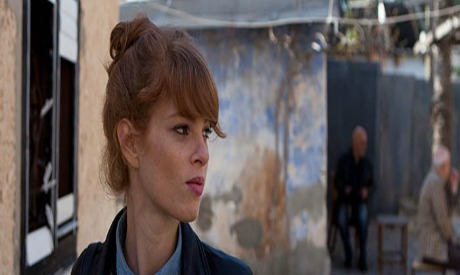
Still from Amos Gitai's "Ana Arabia"
Israeli filmmaker Amos Gitai on Tuesday urged cinema makers and artists to create works promoting integration and co-existence to counter the culture of violence in crisis-torn Syria.
"Filmmakers, artists, writers should ask questions and find ways through fiction to say that co-existence is possible, even in this oppressive moment in the region," Gitai, who is in Venice to present his latest film, told AFP.
"Ideas are not weak things. There are money, machine guns and bombs, but ideas have also changed the planet, so we must not hesitate to propose ideas," he said in French.
The director, known for his documentaries and feature films based on Middle Eastern conflict, is in Venice with "Ana Arabia", the story of a young journalist who visits a tiny community of Arabs and Jews living in Jaffa.
The film, in competition for Venice's top Golden Lion award, is based in part on the true story of a Jewish woman born in a concentration camp, who converted to Islam to marry a Palestinian man, keeping her origins secret for 50 years.
Gitai said he was inspired by an article by AFP Jerusalem journalist Majeda El-Batsch on the woman, and his own 30 years of documentary work about a small Haifa community where Arabs and Jews live side-by-side.
In the film, Jewish Israeli journalist Yael, played by Yuval Scharf, meets the relatives of the now deceased woman, who was called Hanna Klibanov but nicknamed "Ana Arabia", meaning "me, the Arab".
Topics touched upon during the slow-moving, dialogue-heavy movie include the difficulties of intercultural marriage, love, and whether new Russian immigrants to Israel who take cleaning jobs are treated better by Israelis than Palestinian Arabs.
Short link: